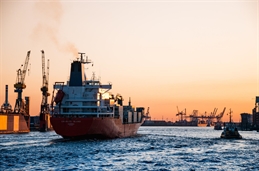
The World Shipping Council (WSC) — the trade group representing the international liner shipping industry — has called on the Biden administration to look into the root cause of the ongoing supply chain disruptions first before implementing any measure that could be punitive to the shipping industry among others.
In a statement, Covid-19 cargo congestion brought on by extreme demand in combination with operational disruptions is currently being felt across supply chains globally and in the US, all parts of the supply chain are facing unprecedented pressures.
WSC noted that there is a lack of rail and truck capacity, warehouses are full, and ports are "bursting at the seams" — which is the context that President Joe Biden is issuing an Executive Order that addresses shipping along with other industries.
Driver of congestion: Spike in consumer demand
"The driver of these problems is demand for imports by US consumers and U.S. businesses. Of the past 12 months, 11 months have had a year-on-year growth in spending on consumer goods of over 10%. To put this into perspective, in the 18 years before the pandemic, the average growth rate was 4.7%," the council said, noting that the impact of this sustained increase in spending on consumer goods is manifested in the volume of US container imports stressing the supply chain.
Citing Drewry Shipping Consultants' assessment of the situation, WSC said the surge in Asian exports being shipped to North America continues unabated and in the first three months of 2021, eastbound volumes grew by 34% — the highest quarterly gain by far since Drewry’s current records began in 1995.
"Ocean carriers literally have all hands-on deck — both on and off the ships
Ocean carriers are employing all available capacity and pulling out all stops to manage the operational disruptions brought on by Covid-19," the Shipping Council said.
It noted, however, that when marine terminals cannot clear the cargo already on the docks, ships cannot berth to discharge and load cargo. In the same way, marine terminals cannot clear cargo if the importers of that cargo have no warehouse or distribution space to put those containers.
Containers are stuck in many places in the US waiting for adequate rail and truck capacity to move them, it added.
Supply chain cannot handle extreme spike in demand
"This is not the fault of any given supply chain actor. Supply chains simply cannot efficiently handle this extreme demand surge, thus resulting in the delays, disruptions and capacity shortages felt across the chain," said John Butler, President & CEO of World Shipping Council.
"All supply chain players are working to clear the system, but the fact is that as long as the massive import demand from US businesses and consumers continues, the challenges will remain," he added.
The statement, went on to argue that the lack of competition is not the cause of the cargo congestion — since liner shipping remains "highly competitive."
"The industry remains competitive by any measure, and the current situation is not caused by any lack of competition. There are over 50 ocean carriers operating more than 1,000 ships that provide some 180 liner services to U.S. importers and exporters," WSC said, adding that prices that shippers have paid over time to move their cargo also vary by origin and destination combination.
It noted that so far, the largest US trade is that between the US and Asia — which is also seeing the most spike in rates.
"The unprecedented surge in rates from Q2 2020 onwards is the clear result of the supply-demand imbalances as well as supply chain bottlenecks caused by Covid-19," the WSC added.
The shipping organization noted that the market is driven by supply and demand and is the result of a competitive market.
It added that even though deployed vessel capacity on the transpacific is at an all-time high, with all available ships carrying cargo, the huge and sustained increase in US imports has "physically overwhelmed" the available capacity and has resulted in a surge in pricing
Only normalized demand will fix the problem
"The current supply chain disruptions are the result of an historic surge in demand by Americans for goods from overseas. There is no market concentration 'problem' to 'fix,' and punitive measures levied against carriers based on incorrect economic assumptions will not fix the congestion problems," Butler said.
"Only normalized demand and an end to Covid-related operational challenges will solve the bottlenecks in the supply chain,” he added.
The WSC chief noted that like anyone in other industries, the shipping sector is currently dealing with a "market aberration brought on by the pandemic and the resulting shifts in Americans’ consumption patterns" — which he said are "real" and has driven negative effects across the supply chain.
"Ocean carriers are as anxious to return to a more predictable market as anyone," Butler added.
"In the interim we urge everyone to make decisions based on the real facts about the situation before we create long-term negative results through ill-considered regulatory changes to handle a temporary situation," he said.



